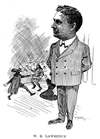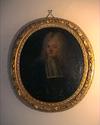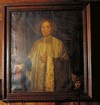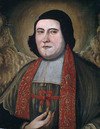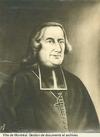domain, Monseignat, had to match expenditures with revenue. The tax farmers had given him orders to pay out card money at the same rate as he had received it. The clergy and the officers whose incomes came
the clergy’s proposal to increase the annual tithes, on the grounds that it would be too burdensome for the habitants. Similarly, he pleaded with the minister to permit and even to support Madame
verbal exchanges that led in turn to complaints about his lack of respect for the clergy. This would not be by any means the last occasion when Jacques’ personality stimulated heated opposition, but it was
“deputy” of the parish priests of his region, he signed a collective memorandum by the Canadian clergy on the tithe, a memorandum that was sent to the court. The situation was aggravated for Abbé Vachon by
functions the law recognized for the theologal, especially the responsibility for teaching theology and Holy Scripture to the clergy and for preaching in the cathedral church. The new theologal’s demands
, newly appointed governor of Louisiana, to regulate the fur trade on the Missouri.
With one or two exceptions Beauharnois got on well with the clergy
at Detroit, refused to recognize the authority of governor and intendant.
In religious matters he gave complete satisfaction to the whole clergy
finally found among his clergy a man upon whom he could rely, and, obsessed by his own mortality, he was preparing to invest Chartier with the highest offices, to provide for all contingencies that might
summer of 1742 Pontbriand continued his visit of his diocese, going to the parishes and missions between Quebec and Montreal. In a pastoral letter on 22 June 1742 he had given the clergy and faithful
allocated forever “to the founding and upkeep of this Seminary and Clergy.” All products of “all the lands of the said country of New France” would be tithed. The settlers’ protests forced Bishop Laval
Jansenism in Europe and over the Chinese rites, quarrels which had repercussions as far as Quebec. The dispute at the time of Bishop Saint-Vallier’s funeral gave certain members of the clergy the
Monbeton* de Brouillan, Durand had been instructed to improve the clergy’s relations with the civil authorities. He seems to have been successful. Brouillan’s death in September 1705 undoubtedly
Poulet*, whom the bishop had had expelled from the diocese the preceding year. In it he denounced and railed at the Jesuits: for their relentless opposition to the secular clergy (which they accused
. In this capacity, in 1711 he re-established the garrison, which had been done away with four years earlier, and in 1712 he recommended giving the secular clergy charge of the parish there, which was
Quebec chapter.
Like many other members of the clergy and society in New France, Gaufin had openly adopted a position in this conflict, which had rapidly
addressed to the clergy and population of Montreal. He ordered an adoration of the cross during a general procession of the faithful from the church of Notre-Dame de Montréal to the Bonsecours chapel. Later
practice he had to depend upon the SPG. Newfoundlanders, like colonists everywhere, would not pay for clergy whom missionary societies would provide free of charge. Kilpatrick’s initial efforts at
Quebec’s Lower Town.
Lajus commended himself to the populace and the clergy as a responsible and Christian individual. He joined the religious
considered too poor to support a secular clergy.
Mézy’s greatest deficiencies as financial commissary were in precisely those areas of bookkeeping and
received when he presented himself at the seminary of Quebec on 28 Aug. 1726. For some years the Canadian-born clergy had been complaining, not without reason, of being systematically kept out of




